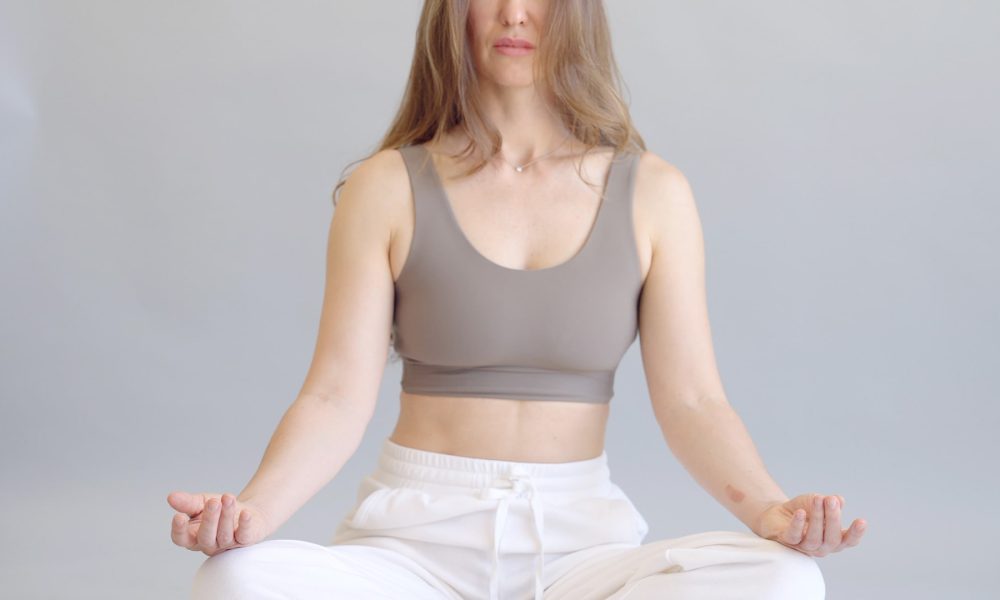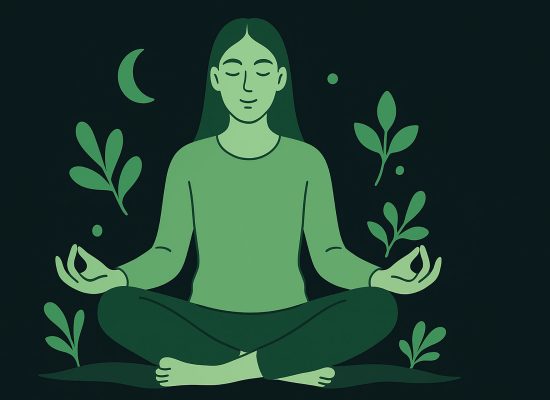When time is your biggest asset it can be hard to spend the time needed to practice self care and learn new ways to introduce healthy habit in your life. Meditation for beginners can seem intimidating if you don’t have a lot of time or fully understand what mediation is and looks like.
Table Of Content
- How to meditate for beginners? 5 things to know before starting your meditation habit
- How should a beginner start meditation? 3 ways to choose your first class
- What is the simplest way to build a habit of meditation? 4 steps to start your meditation routine today
- In a nutshell…
- FAQ about Beginner Meditation Tips
This article provides information about what meditation is, how to choose what will best serve you, and how to establish a routine of daily meditation in your busy life. Beginner Meditation Tips can help you get started with ease and build confidence in your practice To begin practicing meditation today and to learn how it can improve your efficiency regardless of your career, age, or lifestyle, visit Siddha Meditate’s Meditation classes.
How to meditate for beginners? 5 things to know before starting your meditation habit
Meditation is far more simple than you may expect. There are no secret requirements or obstacles between you and your first practice. Here are some ways to begin to understand meditation to ease any anxiety or confusion that you may face before your first practice, so that you can get ready to make the most out of your first practice.
- Meditation is a moment of time when you concentrate on the sensations of the breath and body. Your focus will naturally shift, but these moments are just as important in your practice as the moments of sustained focus. Beyond that, the mindset of meditate is adaptive, guided meditations for beginners are available now on Siddha Meditate app.
- Meditation is a researched and proven booster. The practice of meditation, especially when sustained as a habit, helps with everything from mental health, to self-awareness, to productivity. Meditation has been proven by expert psychologists and spiritual leaders alike and has been practiced throughout human history.
- Meditation looks different for all of us. There is no one size fits all meditation, different people will have meditation strategies and styles that feel best to them. The meditation techniques for beginners that will work best for you will depend on your age, schedule, attention span, and simply preference. Keep an open mind to new meditation techniques and practices until you find one that suites your needs and even when you find a favorite, try mixing it up sometimes.
- Meditation doesn’t require you to sit still or find a quiet environment. Using noise canceling headphones allows you to practice guided meditations for beginners in the busiest and loudest spaces. You can also try out meditations that involve walking or even that instruct you to lay on your back. These are excellent examples of Meditation Techniques for Beginners that adapt to different lifestyles and preferences.
- All you need to practice meditation is yourself and an open mind. Meditation doesn’t require fancy singing bowls, a yoga mat or essential oils. You don’t even need a guided meditation class to begin to practice meditation. Siddha Meditate offers unguided meditations for beginners, available here, providing background noise that allows your mind to focus on the breath from as long or short a time as you would like.

How should a beginner start meditation? 3 ways to choose your first class
It may be daunting to choose your very first guided meditation for beginners because there are so many great ones and you may be unfamiliar with some of the language used in their titles. Here are some ways to decode the language used in beginner classes, feel successful after your first class and chose the class that works best for you!
- Start short. Beginning your meditation journey with a five-minute guided class lowers commitment without minimizing the impact of the practice. Furthermore, starting with a five-minute class helps your mind to adapt overtime to the level of concentration required to feel successful in a longer class.
- Choose a class that has your personal goals in mind. Search the Siddha Meditate app for courses that are relevant to you and your life goals. An overlooked aspect of meditation for beginners is that your meditation practice and habit can support you and your aspirations from day one. Our Finding Balance class is a great choice, helping you to make time for your checklist without sacrificing time for the things that make you happy.
- Guided meditations for beginners often focus on intuitive and trusted techniques. Two types of classes that are frequently created with beginners in mind are breath awareness classes and visualization focused classes. Here are brief explanations for these meditation techniques for beginners so that you can chose the type of class that will work best for you:
- Meditations for beginners that center your focus onto each inhale and exhale and contain the word “breath,” helping you to breath more slowly and consciously by pulling your attention to inhalation and exhalation and directing you to adjust the rate of your breath to help calm the mind.
- A second common meditation technique for beginners is visualization, in this type of practice, the instructor will narrate a landscape, story or body scan(in which they ask you to pivot your attention to different body parts). During this activity, you use your imagination to create an ideal mindset, safe environment or winning outcome to any project or effort.
What is the simplest way to build a habit of meditation? 4 steps to start your meditation routine today
The benefits of meditation for beginners are multiplied when you make mediation a habit in your life. When you’re starting your habit of meditation from scratch, it can feel difficult to sustain and master. One of the most important things to remember about meditation is that even people who have practiced meditation for a long time are constantly learning and building on their meditation practice. So let yourself enjoy the journey of your meditation routine. Here are 4 beginner meditation tips that outline the best steps to take to make meditation a habit in your life.
- Practice day one. Choose and practice the guided meditation for beginners that sounds best to you. Give yourself grace even if the first meditation doesn’t go as planned, meditation is like a gym for the mind so it may take a while for your mind to get into shape. Any healthy habit begins with a step in the right direction!
- Schedule classes in advance. Using Siddha Meditate app’s scheduling feature allows you to integrate meditation into your daily and weekly plans. Having your meditation practice scheduled is a very gentle way to hold yourself accountable to your habit.
- Build up your routine. While it would be amazing to start meditating daily during the first week of your meditation habit, this isn’t realistic for everyone. Try practicing three days a week, then five days a week, then seven days a week, adjusting up whenever it seems right to you! Alternatively, try increasing the length of your meditation as you develop your practice if that serves you and your preference.
- Get right back at it! If you miss a day or even a week of practice, don’t be intimidated to restart your habit wherever you left off. Your mind and other routines will thank you for practicing again.
meditation is like a gym for the mind so it may take a while for your mind to get into shape.

In a nutshell…
This article explains 12 key tips that teach how to use meditation for beginners. Specifically, it teaches you 5 essential things to know before you meditate for the first time you practice, to help you know what a habit and practice of meditation can look like for you. It provides 3 beginner meditation tips for choosing your first class, ensuring that you’ll have a great first experience with meditation and feel inspired to continue to practice. Finally, this article provides 4 meditation for beginners steps to grow and learn from a habit of meditation.
FAQ about Beginner Meditation Tips
How to Meditate for beginners?
Meditation for beginners is simple and adaptable, even if you have a busy schedule or little experience. To start, focus on practicing Guided Meditation for Beginners, which provides structured sessions led by an instructor. These sessions are designed to ease you into meditation by guiding your attention, whether through breath awareness, visualization techniques, or gentle body scans. You don’t need a special setting or tools—just an open mind and a willingness to focus on your breath or the instructions provided. Begin with short sessions, like five minutes, and gradually increase as you feel comfortable.
Which meditation is good for beginners?
For beginners, the best meditation practices are simple and accessible. Breath awareness and visualization are two excellent starting points. Focused breathing exercises help you calm your mind by directing attention to each inhale and exhale, while visualization techniques encourage creativity and relaxation. Following Beginner Meditation Tips, start with short, guided sessions to ease into the practice. Experiment with different techniques to find what resonates with you, and don’t hesitate to mix it up as you grow more comfortable with meditation.
What are some beginner meditation tips to get started?
Starting meditation can be simple with the right approach. Here are some Beginner Meditation Tips:
Begin with a short, five-minute session to minimize commitment while reaping benefits.
Choose a guided meditation that aligns with your personal goals, such as improving focus or finding balance.
Experiment with different meditation techniques, like breath awareness or visualization, to find what works best for you.
How can guided meditation for beginners help me build a habit?
Guided Meditation for Beginners is an excellent way to build a meditation habit. By following structured sessions, you can ease into meditation without feeling overwhelmed. Start with short guided classes, schedule your practice using tools like the Siddha Meditate app, and gradually increase the frequency or duration of your sessions. Consistency is key, and guided meditations make it easier to stay on track.







